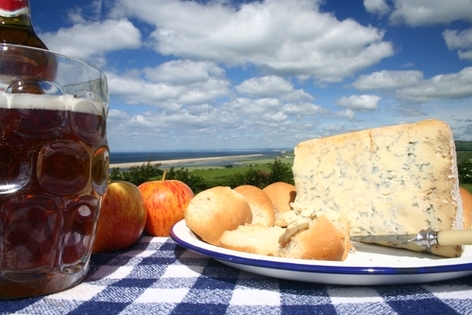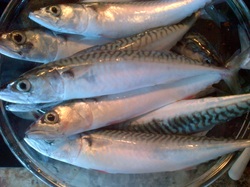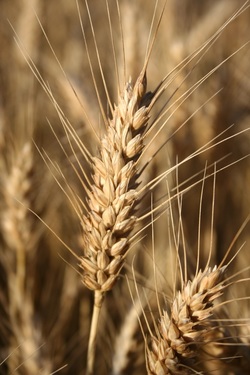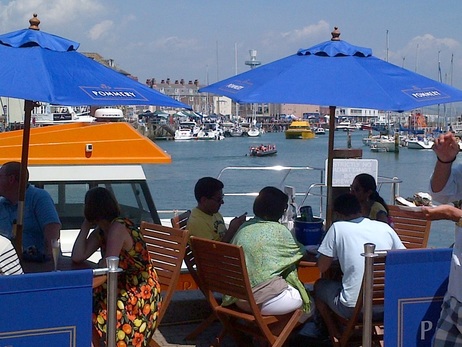Pubs & Grub...
|
Nothing defines a place and our experience of it more than food. Dorset’s places and Dorset’s foods are no different.
From early childhood, we recognise that foods from different places affect our enjoyment both of the food itself and the place we’ve visited. From our first taste, foods and places become linked. In many cases the taste of the one will conjure up memories and pictures of the other many years after the food was first tasted and the place first visited. At its most simple, children may love the way their mother cooks a certain dish yet loathe it when cooked by another. As we grow older, that most personal of sensory links to our surroundings develops and grows and adds to the way we learn about people, places and countries. At its most extreme foods become a stereotype for whole nations. The French call the Brits “Les Rosbif”, while the Brits dwell, possibly unhealthily, on aspects of French cuisine to the point that one could be forgiven for thinking they eat nothing more than snails, frogs-legs and cheese. This fascination with food and drink may seem strange, but when you think about it, few relationships are more intensely sensory and personal than the relationship between a person and what they eat or drink. We are, after all, more likely to put food in our mouths when we visit somewhere new than we are to allow a stranger to kiss us on the lips! What’s more, the food that we eat, taste and experience, will eventually, quite literally, be assimilated into our own bodies -and few relationships get closer than that! Perhaps this is why food has become such an integral and important part of both the experience of travel, but also of local, cultural and national identities. And yet, unlike many other aspects of life, reinforcement of identity through food is more likely to bring people together than to enforce division. When people share food whether at a meal, a gathering, as a gift or through trading, they learn more about each other and the places they come from. In short, food is special, perhaps uniquely so in human society. If that’s so, then what’s special about food from Dorset? Well, quite a lot! Dorset foods can be special for various reasons. There are foods that are uniquely and especially linked to the area because they have their roots in Dorset and its traditions. There are foods that are otherwise quite normal apart from the fact that the way they were produced in Dorset adds a little something extra. And then there are foods which when produced in Dorset add something back to the area itself or help to keep bits of it just the way they’ve always been. Foods that have their roots in Dorset tradition include Dorset Blue Vinny Cheese, Dorset Knob Biscuits, Dorset Apple Cake and Dorset lamb to name just a few. Among the foods that benefit from being produced in Dorset there are locally produced cereals, meat and meat products, milk and dairy products (including ice-creams!), salad crops and watercress, eggs and a whole gamut of fish and other seafood. And then, of course, there’s the way that these foods are produced. Often this has helped to make Dorset what it is by helping to shape landscapes, ecosystems and even our built environment. Through the food pages of Dorset Camper, we’d like to share some of these special foods with you. Some you will find in local tourist shops. Some you may find in supermarkets. Others you may need to look a little harder for in farm shops and farmers’ markets. Or you may choose instead to sample Dorset’s wide and varied menu through its restaurants, pubs and other eateries. Wherever you get the chance to have a taste from Dorset’s delicious and varied table, you can be sure of one thing. Dorset has a rich, fascinating and proud food heritage and a deliciously tasty and exciting food future. So whilst you’re here, make sure you take a great big bite. And when you get home, look out for all the foods which help keep Dorset special and which are special because they’ve come from Dorset. |
This fascination with food and drink may seem strange, but when you think about it, few relationships are more intensely sensory and personal than the relationship between a person and what they eat or drink...."
|



